[POST] The Right America is White America
Trump 2.0's campaign to hold off our nation's demographic makeover
This is a reader-supported publication. I give it all away for free but could really use your support if you want me to keep doing this.
White Christian Nationalism combines Christian faith with self-perceived “truths” about the racial and cultural superiority of White people. It is very much a “chosen people” argument, which is why it naturally allies with Judaism in its most “exceptional” forms. It also speaks to America’s “sacred history” in which the “bad guys” are foreigners, gays, women who don’t know their place, and non-Whites in general but especially those who engage in interracial relationships. By definition, it craves a past, one when “you didn’t need a scorecard to tell the players” because homogeneity reigned supreme (e.g., America at peak-Whiteness [90%] in the 1950 census).
In this worldview, White or European or Western civilization is the sole positive mover of history. That history is dominated by straight White men who invent everything, win everything, build everything, conquer everything, and so on. Despite being a single-digit fraction of the world’s population, White men are in charge of everything that matters.
And yeah, there is some legit history to back this view (especially if you consider the rest of the world’s history to be backward and meaningless and “unchosen”); it just doesn’t capture the future for myself, America, and the world.
For most of my life, racism has been defined as a White issue vis-a-vis non-Whites. Today, under Trump 2.0, that definition is being flipped on its head so that the only racism worth fighting is that of anti-White racism.
The demographic driver behind this development is clear enough:
America is presently undergoing a racial makeover of an unprecedented nature, meaning, there is no example of a modern society long dominated and defined by Whites having that dominance ended — at least numerically — in the rapid-fire manner of the US across my putative lifetime (1962-20??).
I wrote America’s New Map for two reasons:
I felt this growing fear within US society about this racial makeover. It’s expression takes many forms but you can almost always trace the logic back to this sense of loss: loss of privilege, loss of centrality, loss of feeling like the country revolved around us (Whites) far more than anybody else. Many look at that status quo and say, this is the way it should be — and remain. America should, in effect, remain the America I grew up in (I mean, is that too much to ask?).
I felt this growing fear across America about globalization’s racial makeover. As Asia rises and Europe ages and America withdraws (going back to Obama), we come to see a future globalization that is less about America, Europe, Whites, the West, and Christianity and more about everything and everybody else. And that leaves Americans feeling smaller and diminished and less privileged and less central — perhaps even less chosen.
These two fear factors relate to one another like Russian nesting dolls, with the White fear neatly nestled within the bigger American fear. They collide perfectly over the border/immigration issue, which, as it has been for well over a century now, gets conflated with immoral drug trafficking and use (go back to the first anti-immigration laws out West and you’ll see Chinese + opium conflated as the Yellow Peril). Hell, the latest drug overdose mania is … wait for it … China and fentanyl, showing you how little things have changed.
Trump as Savior punches through all that fear and delivers THE solution.
White Christian Nationalism + MAGA just screams patriarchy (Wait til your Father gets home), White supremacy (anti-White racism is the real threat), nativism (with even “homegrown” now vulnerable to deportation?), and heteronormativity (DEI must go, along with anyone benefited by it).
This is Trump incarnate, which empowers him (or so it seems) to toy with the idea that he is the messiah, new Christ, hell … maybe even the new pope! It’s all so hilarious (Hardy har har!) and threat-signaling (Can’t you take a joke!).
You know what really gets me about all this Trump as Christ imagery? If that idea can be successfully floated and memed today, then what does that say about the actual Jesus Christ two thousand years ago, when tall tales were that much easier to propagate?
A depressing thought that I will set aside for now …
Everything White Christian Nationalism opposes are — naturally sources of “moral decline” (LGBTQ+, “criminal" and “insane” migrants, the “America/White-hating” ideology of DEI), so anything that prioritizes the restoration of White rights is good and anything that denies White centrality is bad.
Here’s how I described this fear-driven movement and its connection to anti-globalization in America’s New Map:
American documentarian Ken Burns notes that “race is at the core of the American story.” Until recently, that story was told in a one-sided fashion befitting a country populated overwhelmingly by Whites. America was 81 percent White in our first national census (1790) and that share crept steadily upward until peaking at 90 percent at the middle of the twentieth century.
As America began exporting its model of globalization-through-integration following World War II, the White share of its population began its slow decline to just under 60 percent. What had been a pre–World War II immigrant flow dominated by Europeans eventually morphed into one dominated by Latinos and Asians. In 2050, Whites will comprise 47 percent of our population—just over half that 1950 high point. That steep demographic journey is unprecedented among the world’s great powers. It has never been attempted—much less self-engineered.
As globalization’s pioneering force, America must not only survive this demographic transition but also demonstrate how a predominantly multiracial union can thrive across its unfolding. Doing so will not only restore but define America’s global leadership this century by providing the biggest, boldest answer to the greatest political challenge ever faced by humanity.
Northern states must learn how to create and sustain larger political unions that will over time extend themselves southward toward those states most vulnerable to climate change’s ravages. We either spread Middle Earth’s rising risk across a wider subscriber pool—just like in health insurance—or we are looking at widespread state failure there, resulting in all manner of “emergency room” treatments (i.e., US military crisis responses) that end up being a day late and many dollars long …
For the United States to extend such political networks southward is, by definition, to rethink the geographic limits of our Union …
However inconceivable that may seem from today’s perspective, understand that the alternative is to undergo the same racial transformation but in an entirely internalized fashion. America’s current path of immigrant-led population growth reformats our racial makeup along much the same lines as would any hemispheric expansion of our Union. Point being America heads down this path either way. The question is, do we face better odds—and outcomes— attempting this demographic journey strictly within our current borders? Or would it be a far less pressurized path to methodically extend our borders to encompass new member states where Whites are typically in the minority? …
White America must choose between preserving its privilege and preserving our democracy. There are ways to forestall the loss of White power, and America is well versed in all of them: stacking courts, gerrymandering legislative districts, suppressing non-White votes in the name of “election integrity,” mass incarceration of non-Whites, and so on. None of these tactics staves off the inevitable …
America’s failure in navigating this unprecedented domestic path would derail the world system and our privileged position within it …
Just as importantly, the American Dream cannot again be reduced to a Whites-only proposition, as its global drawing power is based on the possibility of anyone achieving it. US-style globalization is no different: we either prove that a White minority can thrive in its original multinational model (United States) or the looming economic dominance of the majority non-White global middle class will trigger similar self-destructiveness on a wider scale …
This is where shared concerns for the preservation of identity collide: inside America, diversity means relatively fewer Whites, thus diminishing White privilege. Outside America, globalization means the rise of the non- White East and South, thus diminishing Western/White power. For decades, globalization reflected the unstoppable spread of Westernization, but now it connotes its retreat in the face of the same them relegating “true Americans” to minority status.
All this fearmongering prevents Americans from reasonably discussing what is going on. Latino migrants continue to flock to our border. Many of them are climate refugees, and their numbers will only grow significantly with time. If America does nothing to manage this dynamic at the source, our country will be incredibly stressed by this desperate northward migration. Like any species confronted by climate change, America can move (Hello Canada!), adapt (ideally by growing our Union southward and northward), or die (hollowing our democracy to the point of autocracy).
During the 2024 campaign, Trump stated that there is a "definite anti-White feeling in this country and that can't be allowed.” Once in office, his administration set about eradicating DEI policies throughout the Federal government, and now the White House targets liberal universities, framing them as discriminatory against Jews (anti-Semitism serving as the Trojan Horse in this instance) and, more broadly, against White Americans.
The Trump administration and its allies have signaled a significant shift in how racism and civil rights are conceptualized at the federal level. They propose redirecting anti-racism protections toward White people, arguing that "reverse racism" and “wokeism” and critical race theory are more pressing threats. Key Trump allies actively work to reinterpret Civil Rights-era laws to prioritize protections against what they describe as "anti-White racism," rather than focusing on discrimination against people of color. This strategy is supported by legal actions and advocacy from groups aligned with Trump and is part of a broader backlash against DEI initiatives. The Trump administration ordered federal agencies to halt all trainings on systemic racism and unconscious bias, and banned such trainings for federal employees, contractors, and grant recipients. Enforcement of civil rights laws on behalf of historically marginalized groups was deprioritized, while federal power was used to challenge equal opportunity initiatives.
This redefinition of racism has been met with criticism from civil rights organizations and commentators, who argue that it undermines efforts to address systemic discrimination against historically marginalized groups and exacerbates racial tensions. For example, FBI data continues to show that anti-Black hate crimes remain the most frequent category, far outnumbering anti-White hate crime.
For a good history and examination of White Christian Nationalism in the US today, try the 2022 book entitled The Flag and the Cross by Philip S. Gorski and Samuel L. Perry, who describe its historical roots, evolution, and its growing threat to American democracy.
Just looking at the cover and comparing it to my own, and one gets the same destructive vibe when it comes to racial tensions fracturing American identity:
Gorski and Perry define White Christian Nationalism as the belief that the United States was founded by White Christians for White Christians, along with a divine mandate to preserve this order. They track the chosen people/nation myth back to the Puritan settlers in the 1680s — a rough half-century following the first arrival of enslaved Africans in 1619. Like that controversial 1619 Project, Gorski and Perry argue that this ideology has shaped American history, politics, and social dynamics, and now poses a direct threat to the country’s democratic institutions.
White Christian Nationalism has survived over the decades by incorporating new groups, such as Anglo-Protestants following the French and Indian War (1754-63), White Southern slave-holders during the republic’s early years, White segregationists following the Civil War, and ultimately nativists who opposed non-White immigrants (with, of course, the option to admit these peoples into their White ranks over time, as in the case of the Irish, Italians, Slavs, Arabs, and today even the “right sort” of Asians (Indians and Filipinos, for example).
The point of the book is to emphasize, how, at critical junctures in US history -such as Reconstruction, the rise of Jim Crow laws, and the South’s "Lost Cause" narrative, America and Americans repeatedly chose to reinforce White Christian dominance rather than expand democracy and inclusion.
Yes, that resistance to civil rights fell into retreat across the 1960s and 1970s, only to find new expression and “salvation” with Reagan, only to then suffer a setback with America’s first “Black” president, Bill Clinton, then a revival with the born-again George W. Bush with his crusade against Islam, then a stunning setback with Obama’s win in 2008 that triggers its current revival and now quasi-supremacy with Trump 2.0.
Gorski and Perry similarly trace such connectivity to the Tea Party, the MAGA movement, and the January 6th Capitol insurrection, arguing that the myth of America as a Christian nation is now more significant to adherents than actual Christian doctrine, resulting in "evangelical" becoming more of a political identification than a religious one.
Most disturbingly, Gorski and Perry use sociological data to illustrate how White Christian Nationalists have migrated strongly in the direction of authoritarianism and even political violence to defend themselves against a threatened “genocide.”
This is potent stuff, but entirely un-American. Democracy is based on the notion that humanity’s paths to happiness are infinite, whereas White Christian Nationalism, like all exclusionary ideologies, rejects such pluralism and preaches the one true path for the singularly chosen people in a singular chosen nation.
As I have argued here before: there is patriotism (love of country) and there is nationalism (exclusionary and typically hateful assertion of dominance). Toss in the hated globalists and you’ve basically recreated Europe’s interwar fascism of the 1920s (Italy) and 1930s (Germany).
Both ideologies (White Christian Nationalism and fascism) fuse authoritarian nationalism, racial supremacy, and the weaponization of Christianity to justify exclusionary and violent policies.
To me, this is why the choice of the next Pope is so important. Francis came out vocally and vehemently against White Christian Nationalism — particularly as it pertains to anti-immigration policies. Today, the Catholic Church is fundamentally split on this issue. Only a minority of Catholics today self-identify as White Christian Nationalists, but their ranks are growing and, on that basis, fueling a polarization of viewpoints within the faith.
Why this matters to my vision of the future: In a world shifting to North-South integration, the global Catholic Church plays a pivotal, swing-vote sort of role. The reality is that Catholicism across the Global South tends to be socially conservative — if politically progressive at the same time. That is an awkward balancing act that I would argue is poorly managed across Africa (one-fifth of the world’s Catholics) but better so across the Americas (half of the world’s Catholics).
Indeed, with the majority of the Americas still Catholic (estimated at almost two-thirds of the total combined population), Catholicism potentially serves as the great unifier across the Western Hemisphere.
Why?
South America and Central America and the Caribbean all ring in at about 70-90 percent Catholic, whereas Canada and America are more like 1/5th to 1/4th Catholic. If our shared hemispheric future is one of South-to-North migration, then an expanded American Union will become a very Catholic nation as a result — much like its current Supreme Court.
Again, from America’s New Map:
Genuine Christian nationalists, as opposed to those cynically cloaking their racism with religion, should welcome future North-South integration in the Western Hemisphere, as it would strengthen their ranks. Specific to Catholicism: while the Eastern Hemisphere possesses almost six times the West’s population, half the world’s Catholics are found in our hemisphere, with #1 Brazil and #2 Mexico besting #3 America for the top global spots. With two-thirds of the Western Hemisphere’s population concentrated in those three states—all of which have recently experienced Trumpist populism (no coincidence)—they alone could form the religious core of an Americas Union that addresses preeminent hemispheric issues in a manner that assuages conservative fears of lost religious identity.
Francis was our first Latin American pope. The odds of that repeating strike me as poor, even as the numbers argue for its repetition.
So, yeah, I am very interested in who becomes the pope, as the right or wrong prelate can do much good or much harm depending on how he interprets the church’s growing White Christian Nationalist wing — represented here in America most notably by Trump’s vice-president and heir J.D. Vance — a recent convert no less.
Sound like a bad or implausible novel? Just wait for the mini-series or maybe just rewatch the film Conclave and take a sip from its surprise-ending chalice.




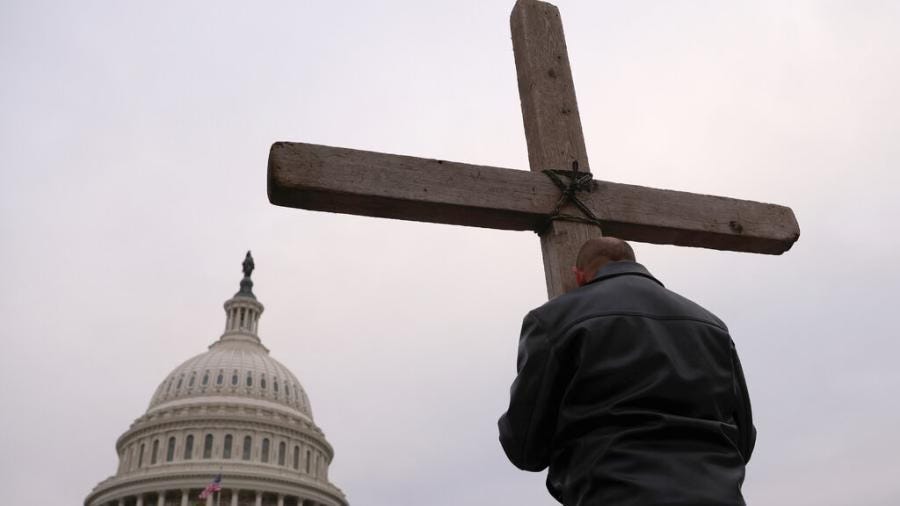
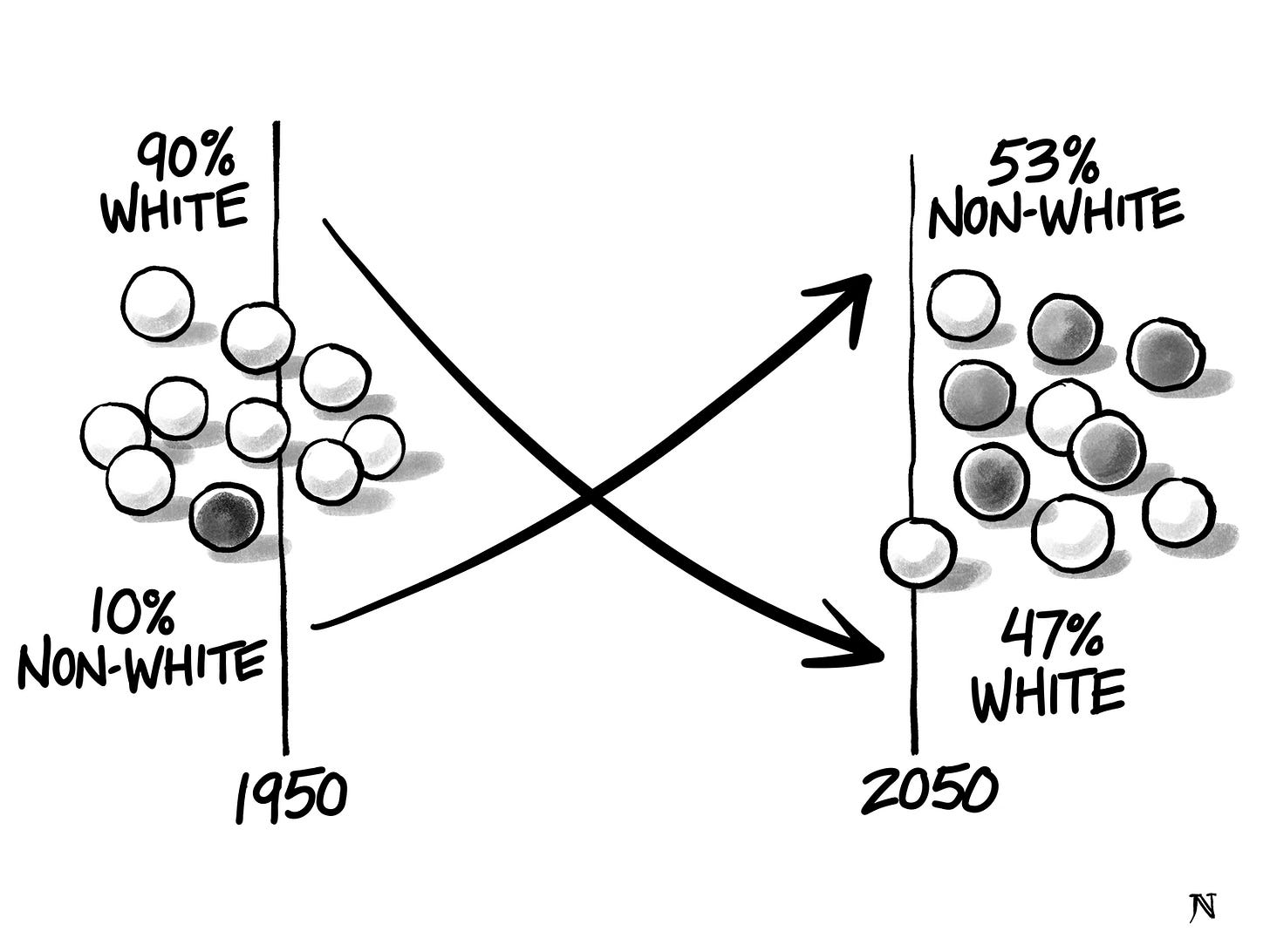


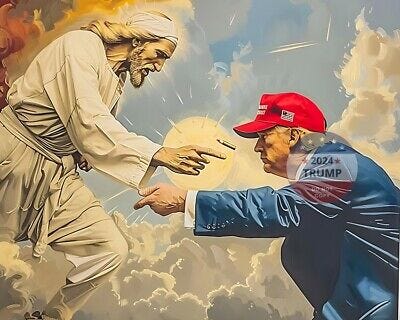
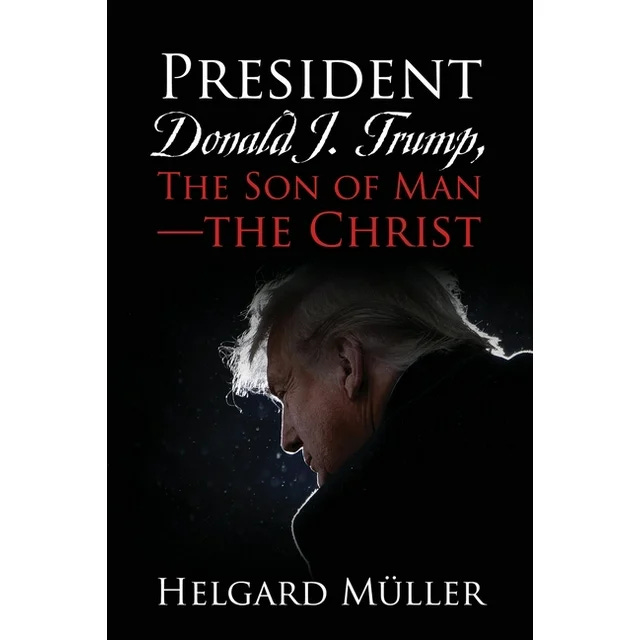

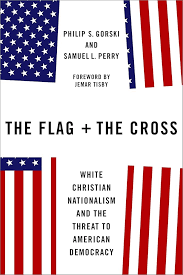
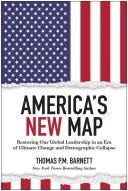


Dear Tom,
I could not disagree with you more. I do not doubt your sincerity and heart felt desire to see more comity in our country but I think you are swayed by plausible narratives that misrepresent what is at play in our country today and principles that have always guided us.
As the country became more polarized during my life time and our political system moved from a system dedicated to discerning the will of the people to a contest between the Hatfield's and the McCoy's, and hugely influenced by a corporate media that found a boxing match much more profitable to report as opposed to good substantive and investigative journalism (which is expensive and never makes a profit), I searched out some foundational principle to guide me in this social war.and this is what I landed on and continues to guide me:
We hold these truths to be self-evident, that all men are created equal, that they are endowed by their Creator with certain unalienable Rights, that among these are Life, Liberty and the pursuit of Happiness.--That to secure these rights, Governments are instituted among Men, deriving their just powers from the consent of the governed...
I think people can argue about the intent. I can remember asking in a high school history class, what about women and the teacher simply said the terms "all men" meant "all humans". Ever since then I have chosen to read it that way, "...all humans are created equal". Now I am a white protestant male so I can be accused as being self serving and a partisan press will certainly make more money, in our current political atmosphere, making my ethnicity the underlying issue instead the substance of what Jefferson was trying to say.
But the most important part of the Jefferson's statement to me is the last part where he says effectively that a legitimate government derives its just powers from the consent of the governed. And then 23 years later emerged our constitution that, before the Bill of Rights amended it, totally dedicated to discerning and then honoring the "will of the people". All people, all humans.
In our current world, that is not enough for the leaders of the Democratic Party. It is my opinion, the Democratic Party wants to fix the humans, at least certain classes of humans, in this country to act and think in a "right way" - a way that is not defined except that it is not the way they are acting now and to insist that they "think" the right way and "talk" the right way. This to me is inimical to what Jefferson and founders sought.
My glaring example is immigration. Joe Biden claimed for 4 years that the border could not be controlled without new legislation from congress but what he left unsaid was the new legislation he wanted was the Comprehensive Immigration Reform which the Democrats had been asking for since the 20th century which would actually legitimize the mass immigration that was occurring. But here is the point, Comprehensive Immigration Reform, as crafted by the Democrats, has repeatedly been rejected in Congress. It does not honor the "will of the people".
I believe in the dialectic. At least my simplistic version - not Aristotle's or Hegel's. I believe the people will be swayed by one set of arguments and then respond to a counter set of arguments from which a synthesis will emerge. In the absence of actual divine intervention, honoring the will of the people by letting this dialectical, self-correcting process, play out is the critical foundational principle.
well done piece, thx.